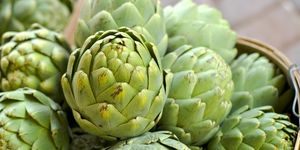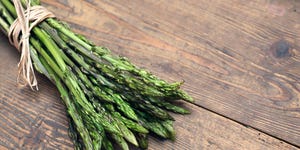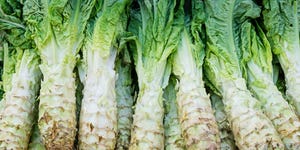Home » Diet & Food »
Apparently You Should Eat Half A Cup Of Black Beans Every Single Day
Celebrated by meat eaters and vegans alike, beans are one of the most versatile legumes. They fit perfectly in a burrito bowl, make a tasty veggie burger base, and stand out as the star ingredient in vegetarian chili.
Clearly, black beans are here to stay—but how healthy are they?
For starters, black beans are arguably the most nutritious legumes you can eat. Their skins—called “seed coats”—contain powerful antioxidants, which have been linked to reduced signs of aging and a decreased risk of cancer, according to Annessa Chumbley, RD, nutrition consultant for Premier Protein. What’s more is that research from the Journal of Agricultural Food Chemistry identified black beans as having more antioxidants than any other bean.
Here’s the nutrition info for black beans (one cup):
- 227 calories
- 15 g protein
- 1 g fat (.2 g saturated)
- 15 g fiber
- 41 g carbohydrates
- .5 g sugar
- 2 g sodium
Black beans have a ton of health benefits.
1. They help you feel great
“I consider black beans my ‘super bean,’ says Chumbley. “In one cup of black beans, there are fifteen grams of protein and fifteen grams of fiber. This combination works to keep you fuller, longer.” Not enough fiber and protein can also make you feel sluggish and run-down. Chumbley also notes that due to their high zinc content, black beans help metabolize fat.
2. They control blood sugar
If you’re on a low glycemic diet, black beans are your ideal side dish. They contain resistant starch, Chumbley says, which passes through the small intestine largely undigested and helps prevent blood sugar levels from spiking.
3. They fight heart disease
Black beans can keep your heart health in check by lowering your cholesterol. “The high amounts of soluble fiber found in black beans have been shown to help lower LDL (bad) cholesterol,” she says. “I call fiber the body’s broom, and no one wants a dusty house.”
Check out these celebs who swear by their vegan diets:
Black beans do have some downsides.
Most people can eat black beans without a problem. But if you have IBS, you might experience gas or bloating when eating black beans, because of their high level of fiber, says Chumbley. If that’s the case, build up your intake slowly over time.



Similarly, those with hypertension (known as high blood pressure) might want to watch out for the canned variety of black beans, since they can be high in sodium, she says. Thoroughly rinse the beans from the can before eating them, or purchase a variety labeled as “reduced sodium.”
What about the dried vs. canned debate?
There’s some fear brewing in the air over canned goods, since they sometimes contain preservatives and excess sodium. But when it comes to beans, it doesn’t matter if you buy them by the can or dry in bulk. “The important point is to use them,” she says. “They are doing no good just sitting on the shelf.”
Chumbley says if you cook them in a crock pot (toss the black beans in and come back hours later), you’re left with a creamy and delicious texture, almost like refried beans or hummus. Black bean dip, anyone?
How often should you eat black beans?
Don’t let this intimidate you, but Chumbley says you want to aim for half a cup a day. Here’s what she eats to up her black bean intake:
- Breakfast: Eat black beans with your eggs.
- Lunch: Sprinkle black beans in a chopped salad.
- Snack: Combine black beans with chunks of avocado, lime juice, and sea salt.
- Dinner: Tuck black beans into burrito bowls or tacos.
- Dessert: Bake brownies and swap the flour for a mix of black beans and chocolate protein powder.
Now that you’re probably starving (same), here are three healthy black bean recipes to whip up this week to help you reach that goal.
Source: Read Full Article



